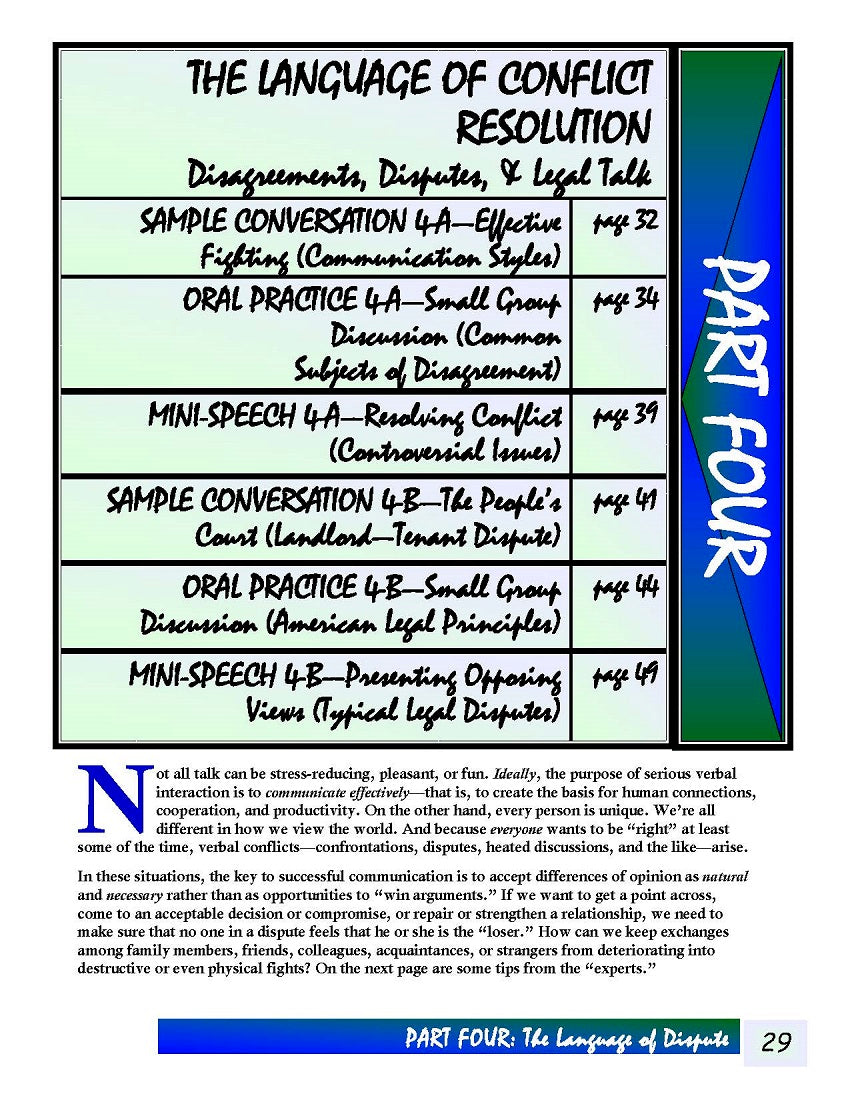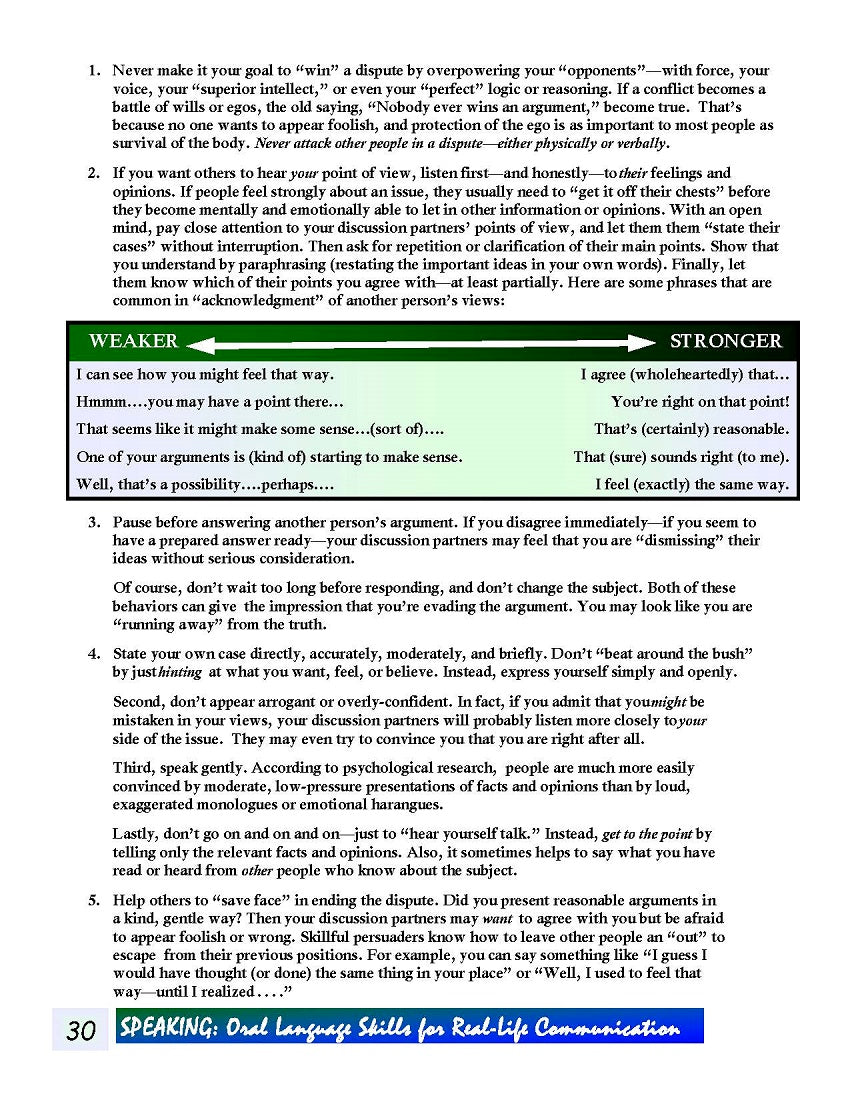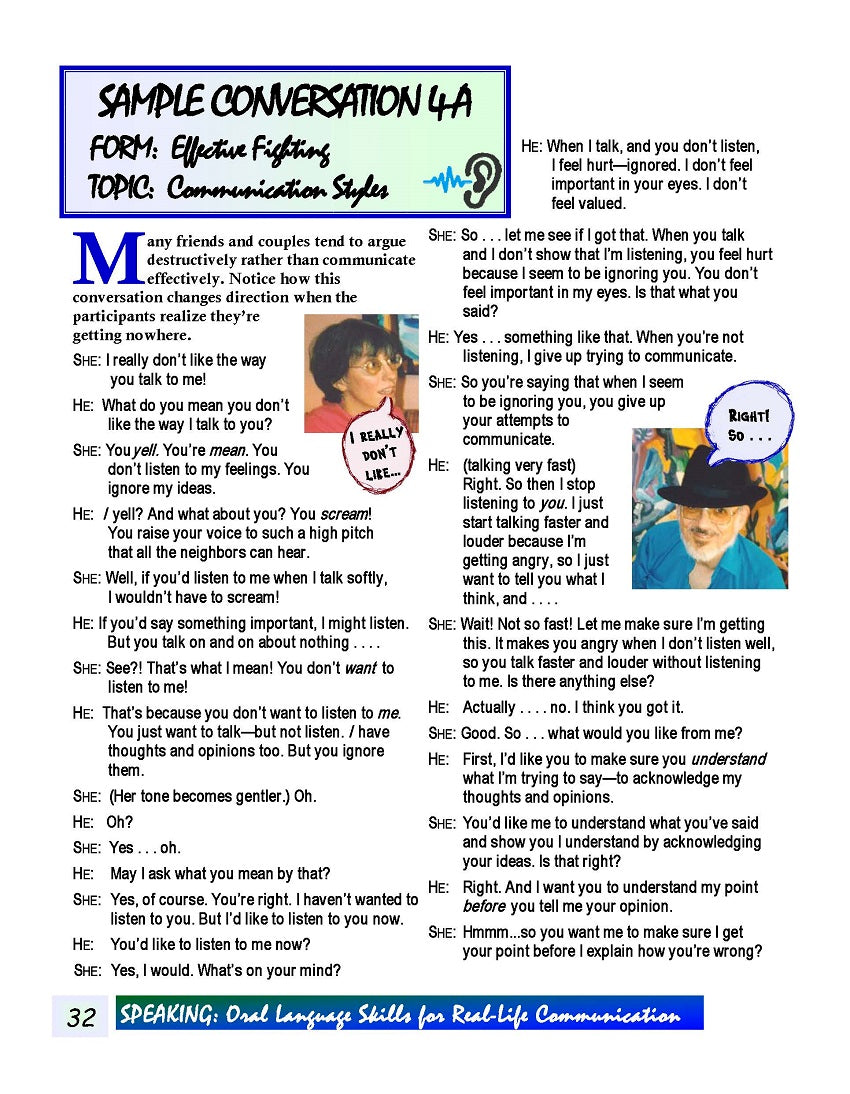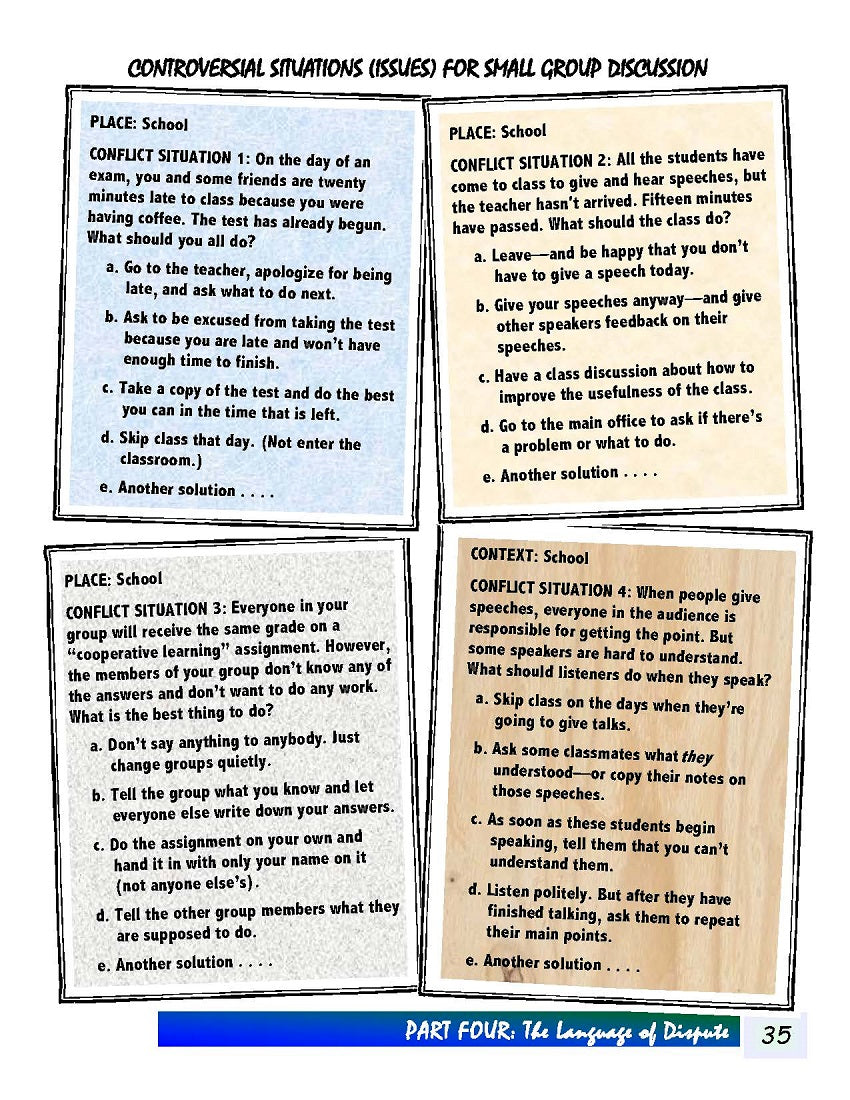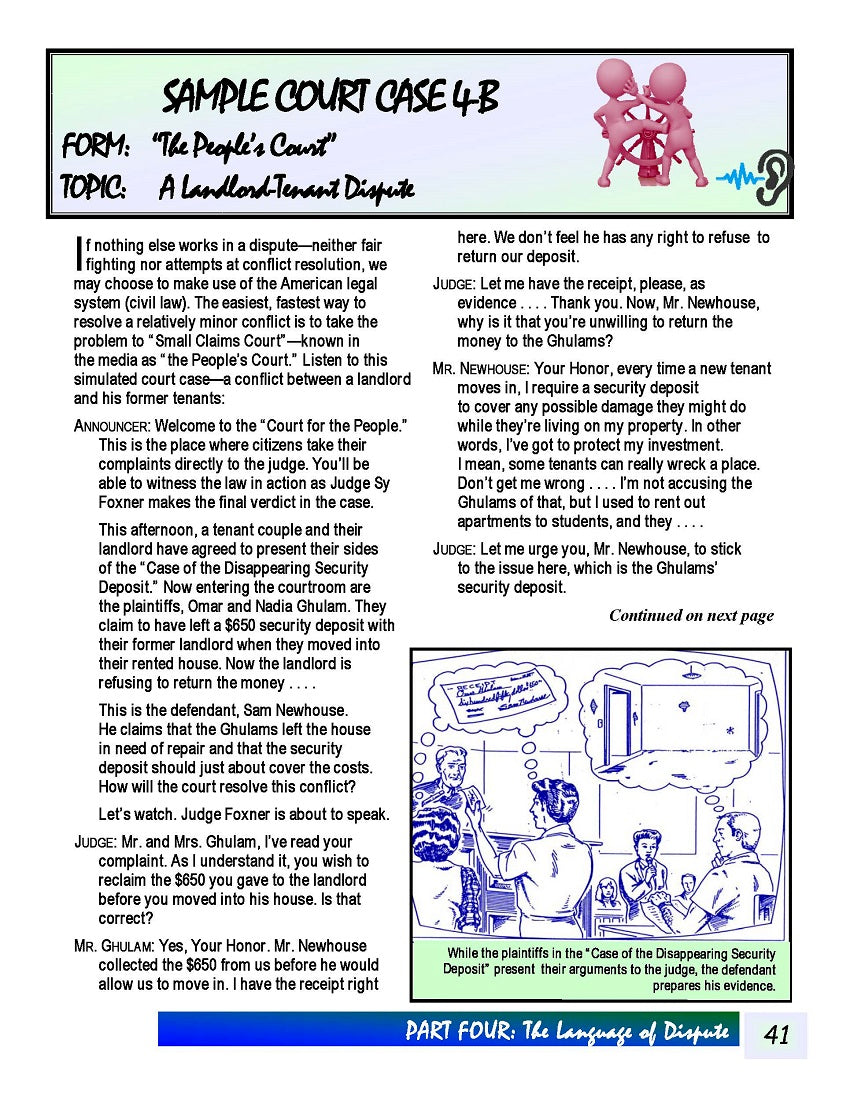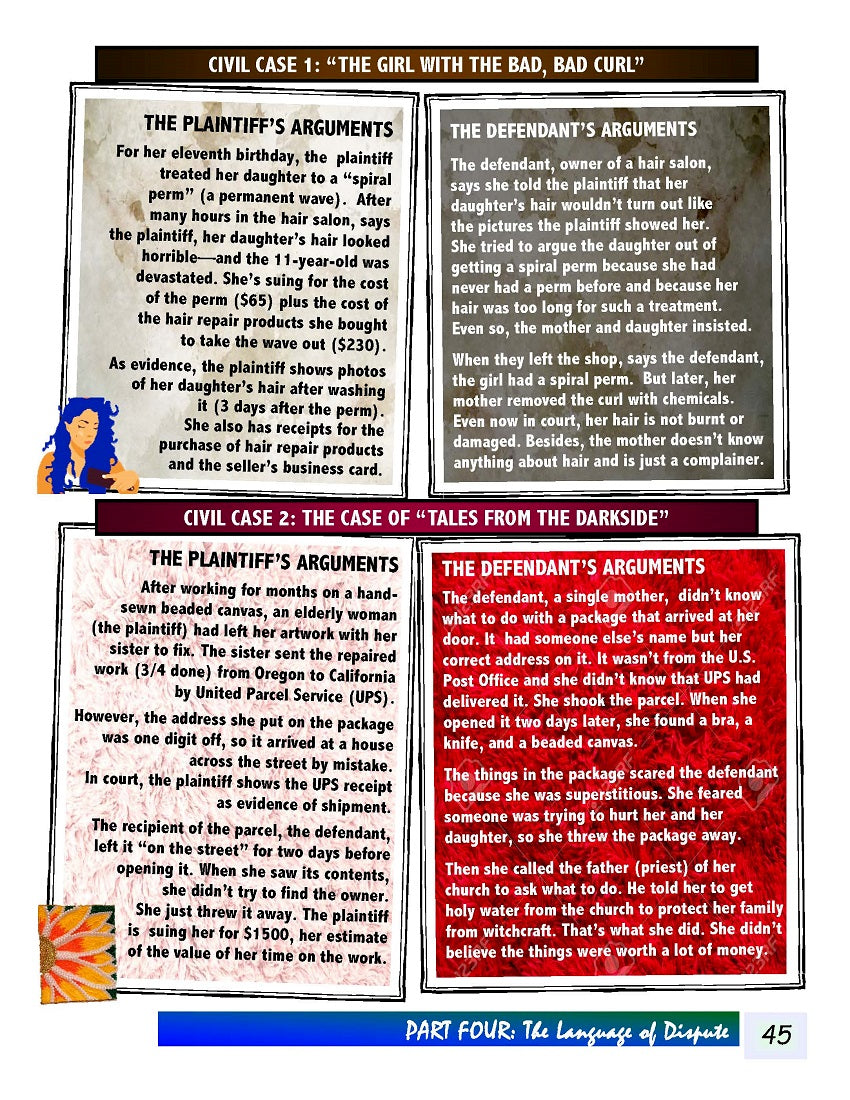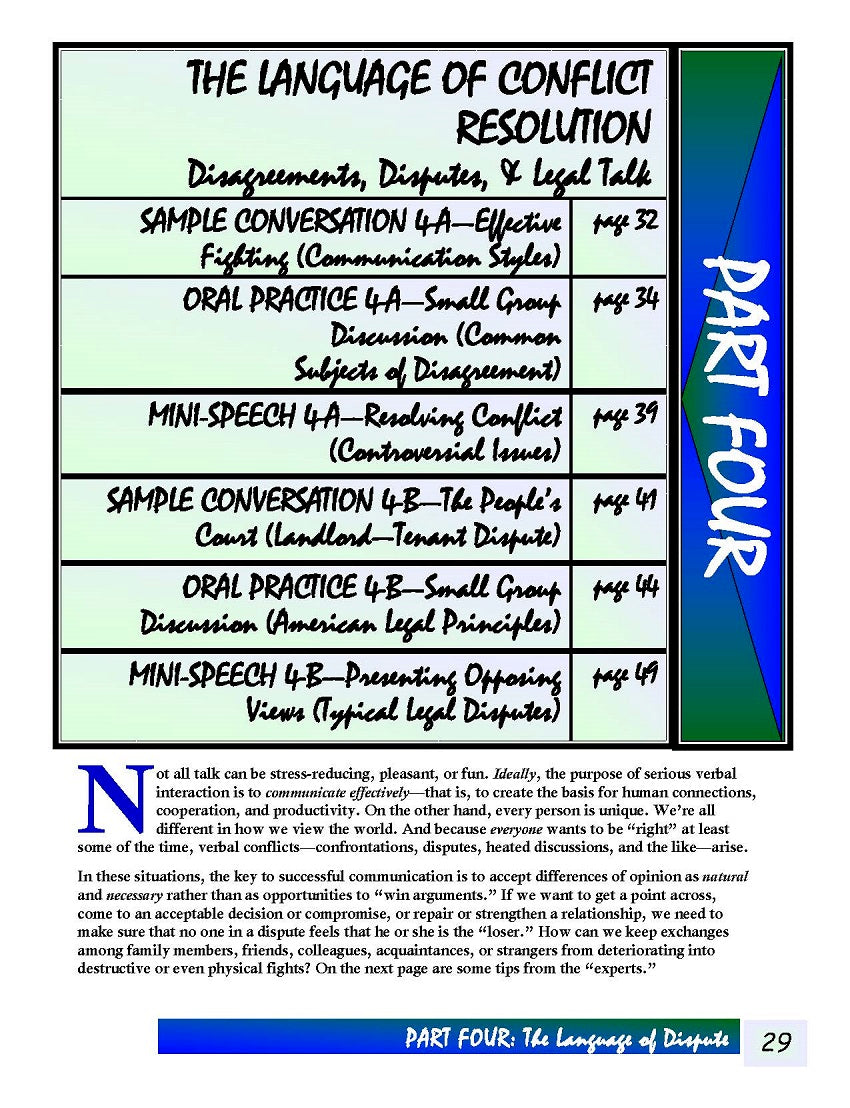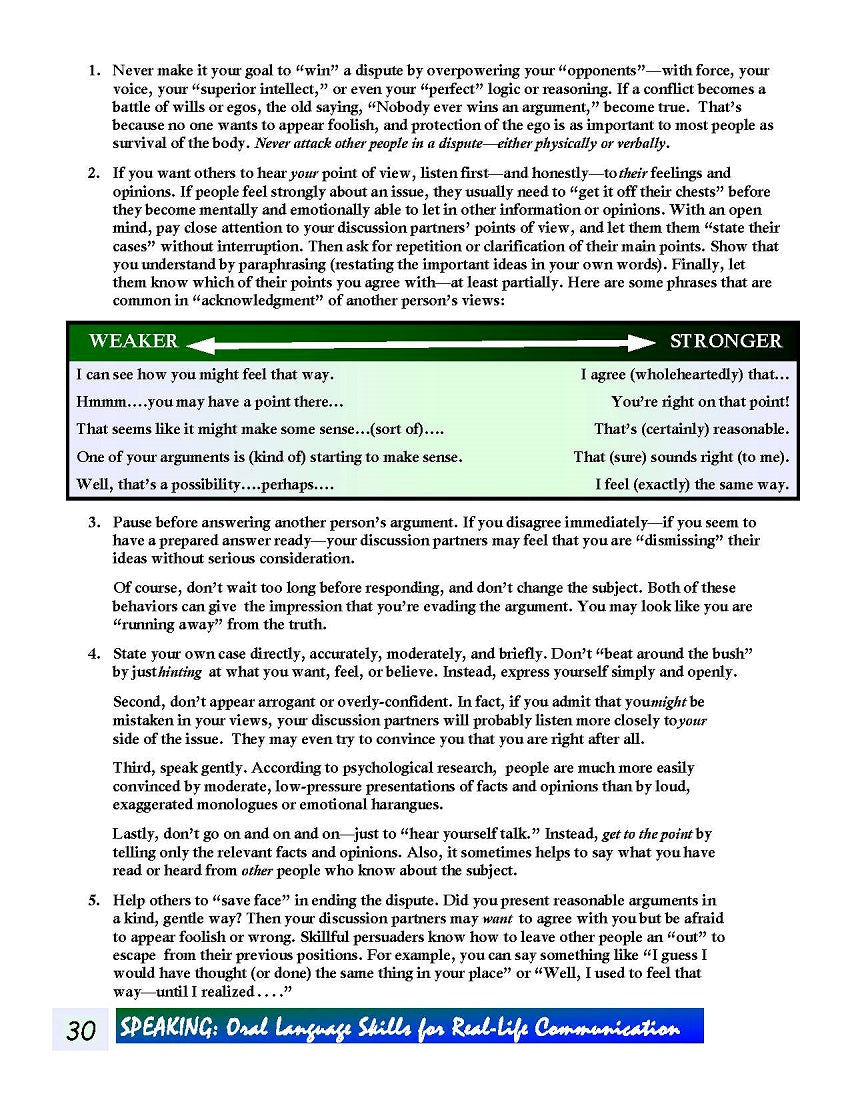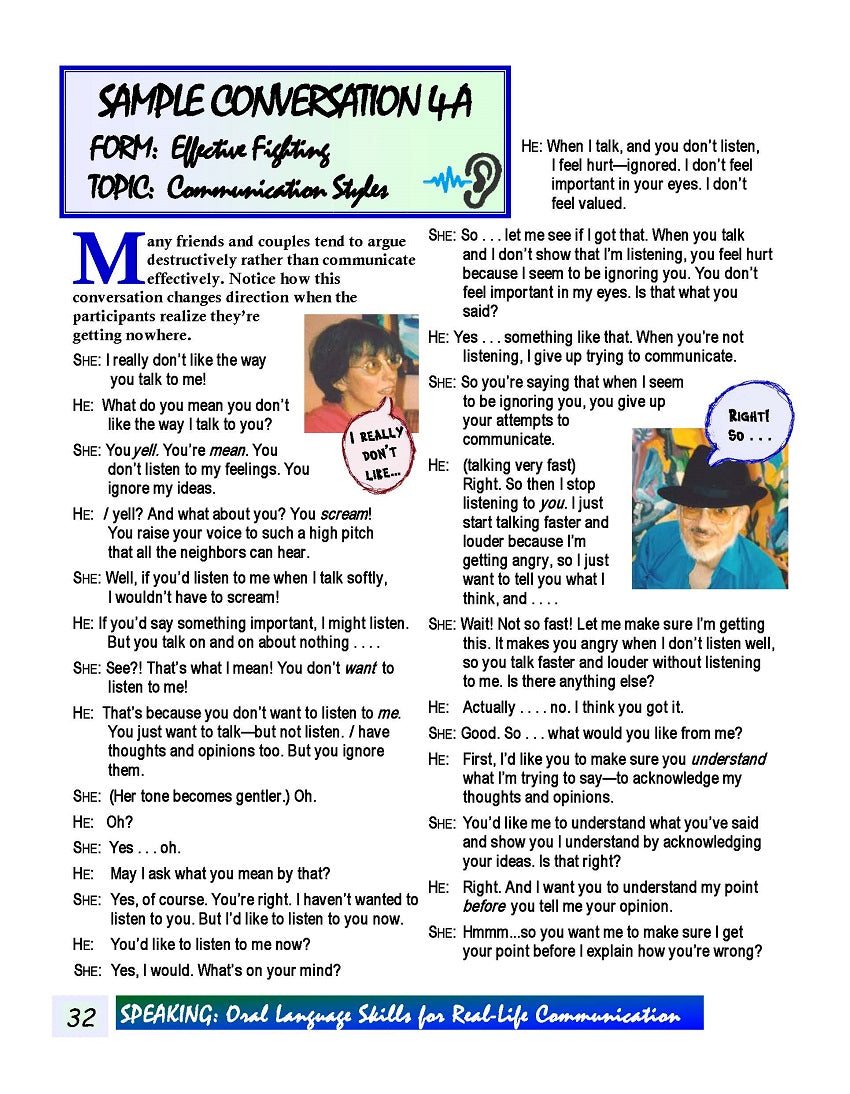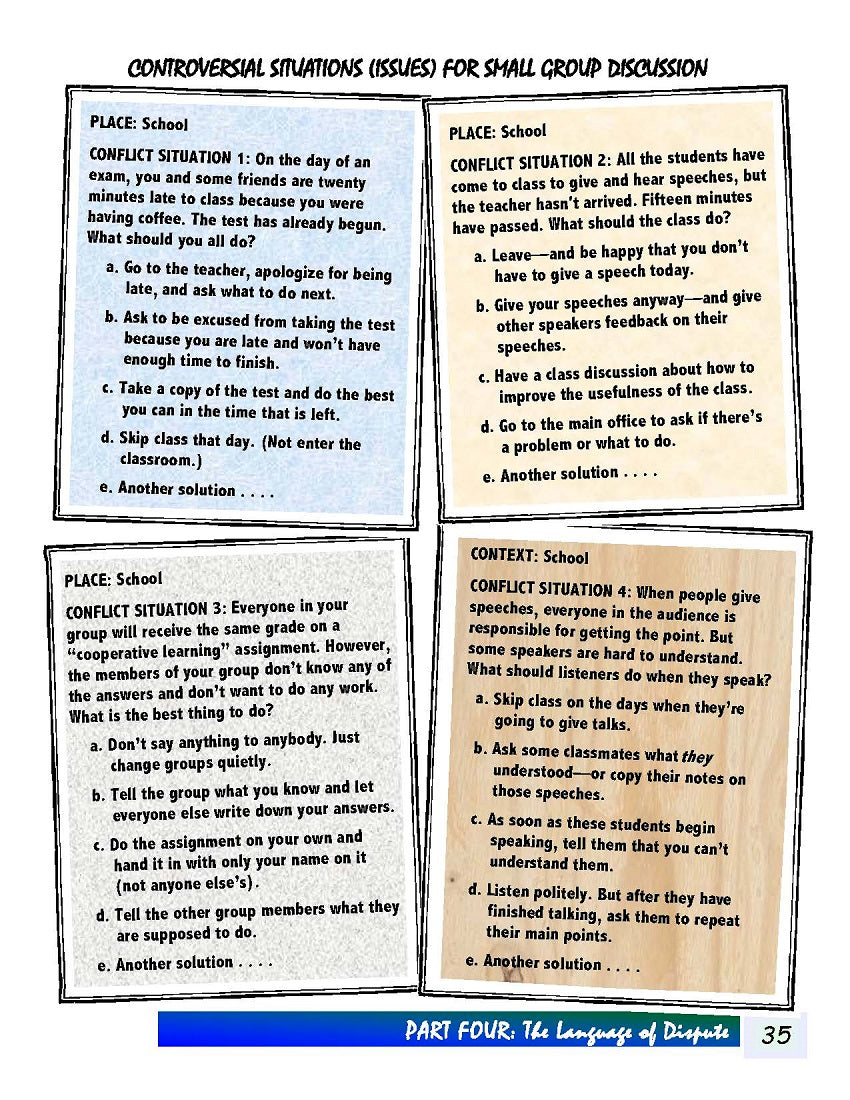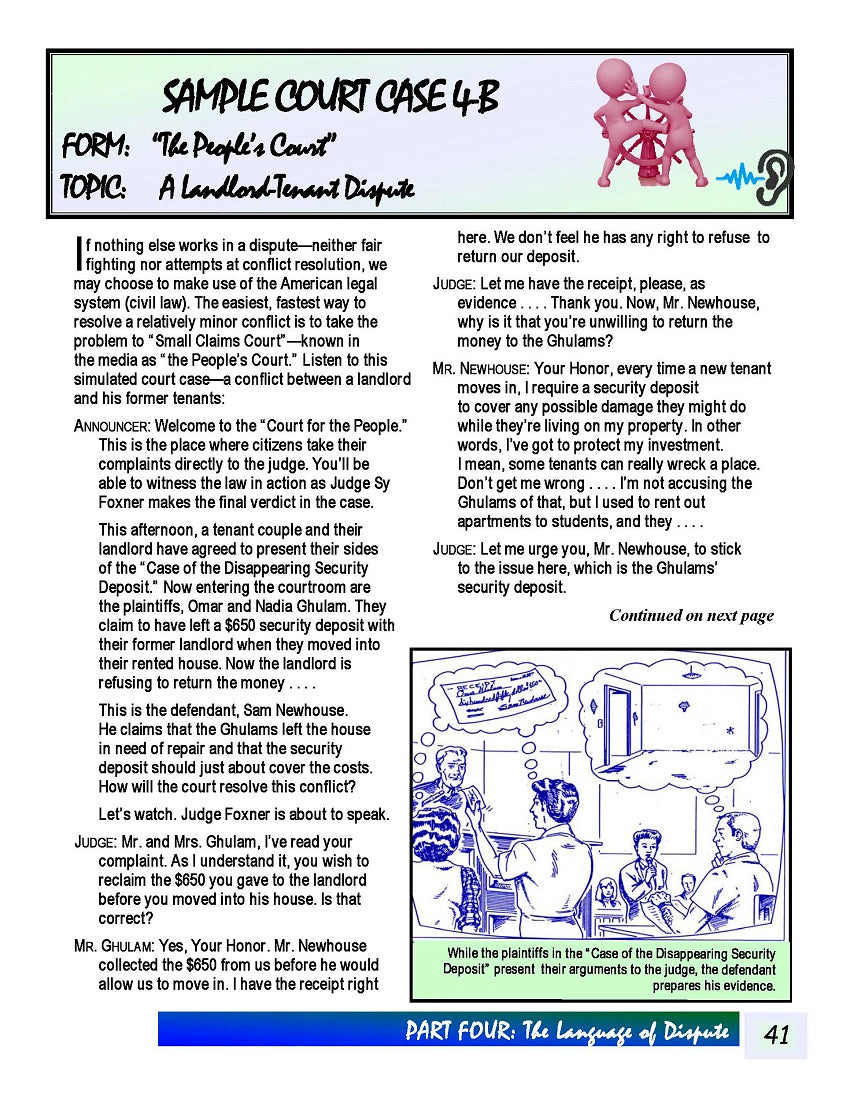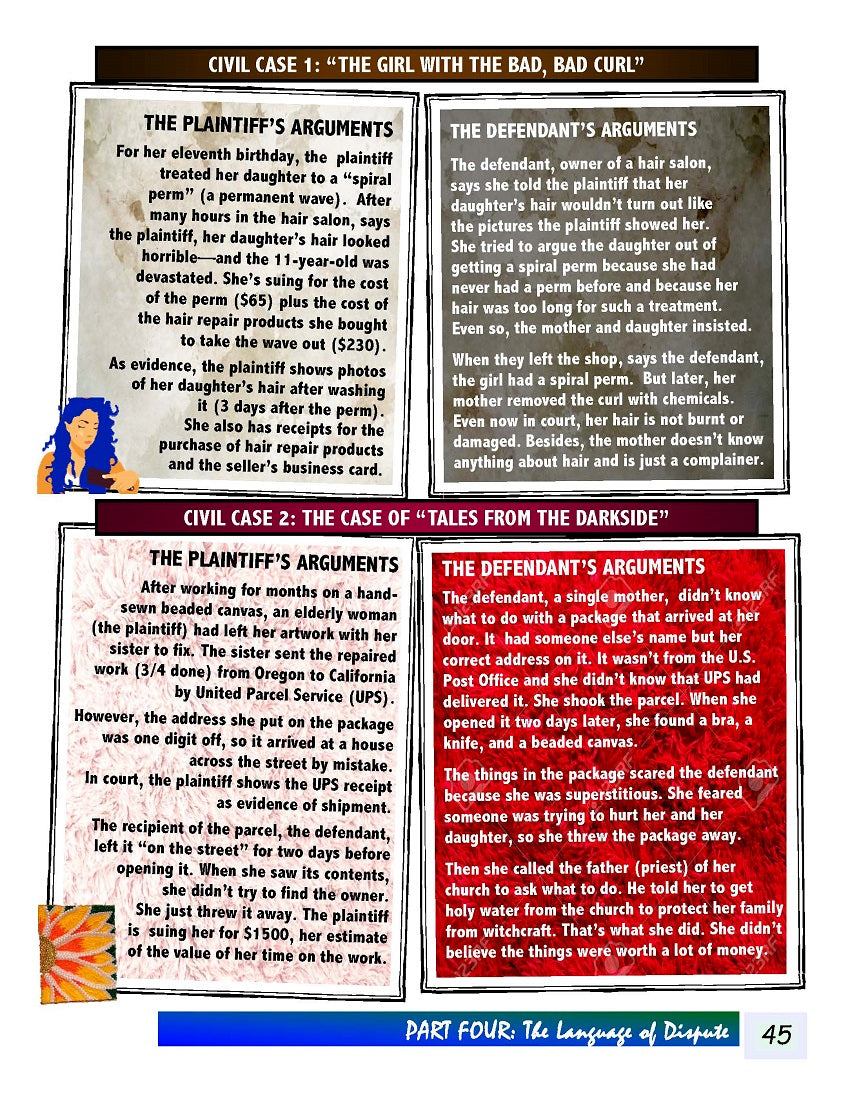Work/Life English
E-10.10 Get Communication Styles for Effective Fighting, Group Discussion of Controversial Issues & Conflict Resolution
E-10.10 Get Communication Styles for Effective Fighting, Group Discussion of Controversial Issues & Conflict Resolution
Part Four of Speaking: Oral Language Skills for Real-Life Communication = The Language of Conflict Resolution (Disagreements, Disputes, & Legal Talk), pages 29-50
22 pages
Who It’s For: (Teachers & Helpers of) Progressing Language Learners Delving Into (Specialized) Talk to Resolve Conflict in Disagreements & Disputes
Why It’s Useful: We’re all different in how we view the world. Because nearly everyone wants to “be right” at least some of the time, verbal conflicts arise. In these situations, the key to successful communication is to accept differences of opinion as natural and necessary rather than as opportunities to “win arguments.” How can we keep exchanges from deteriorating into destructive or dangerous fights? The article that opens this Download gives 5 tips for stating a case and five more for receiving what others claim. It focuses on “the Language of Conflict Resolution.”
As in all eight Parts of Speaking: Oral Language Skills for Real-Life Communication, then there’s material in three kinds of sections: Sample Conversations, Oral Practice, Mini-Speeches. The first half of these aim attention at ways of presenting opposing views on subjects of disagreement. The other sections follow the (legal) format of the “People’s Court.”
What You’ll Do:
[1] Start out by thinking about how you generally go about resolving differences verbally. Hear Audio (and read) Sample Conversation 4A—about “Effective Fighting” between spouses. In Oral Practice 4A, engage in “Small Group Discussion” about arguments that might arise in Controversial Situations at school, work, or home or in the community. From a Chart, consider Phrasing effective in Beginning a Discussion, Presenting an Issue, Expressing an Opinion, Making a Point, Acknowledging, Disagreeing Constructively, Moving Toward a Solution. Use these and your own evolving wording to follow steps for Mini-Speech 4A: Exchanging Opposing Views.
[2] In the three sections labeled 4B, hear a simulated “Court Case” on a landlord-tenant dispute. With explanation of Civil Cases 1-6, discuss plaintiffs’ & defendants’ arguments; then read, tell, and contemplate real judges’ decisions. Finally, conduct (act out) “mock trials” on actual or made-up conflicts of your own.
Couldn't load pickup availability
